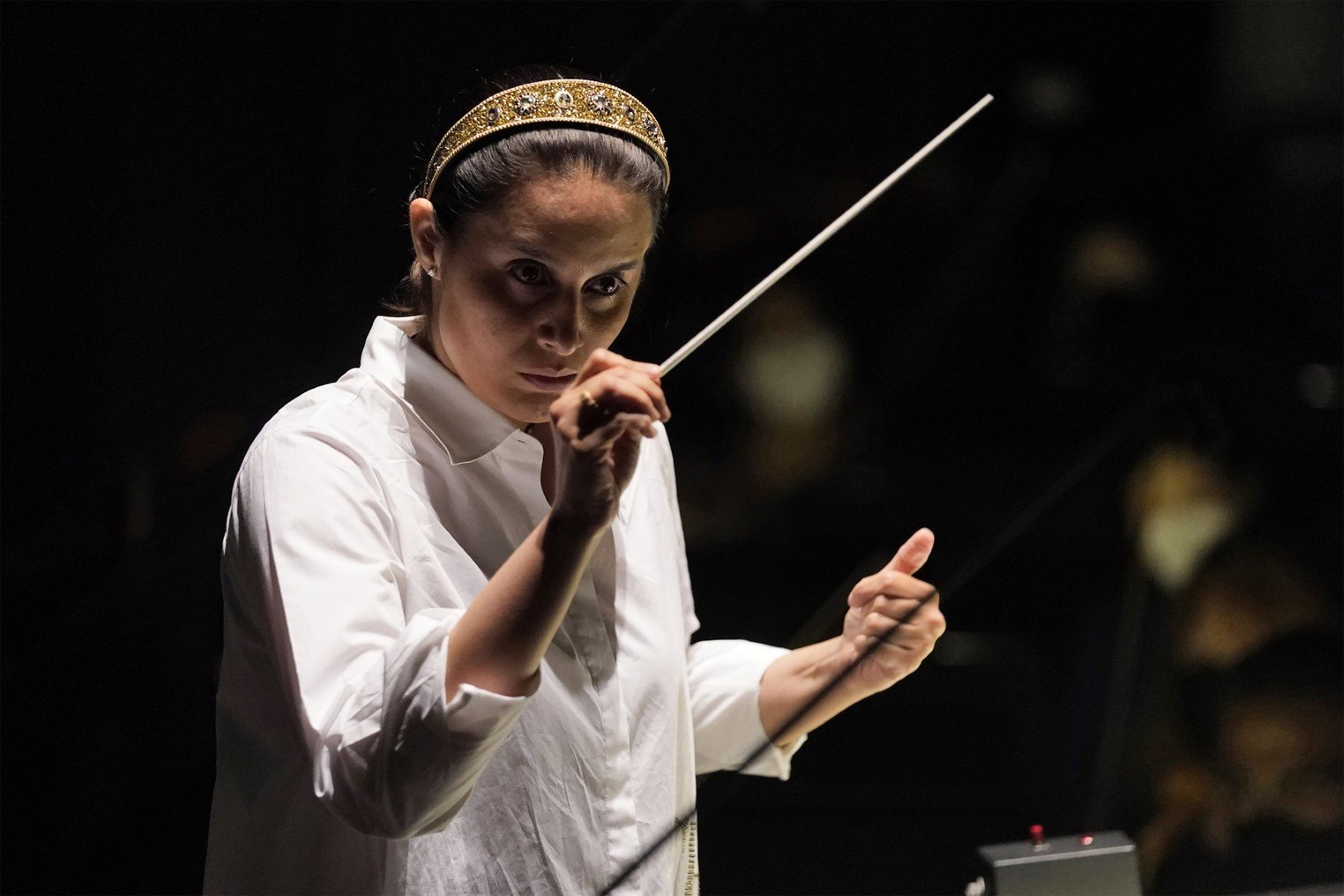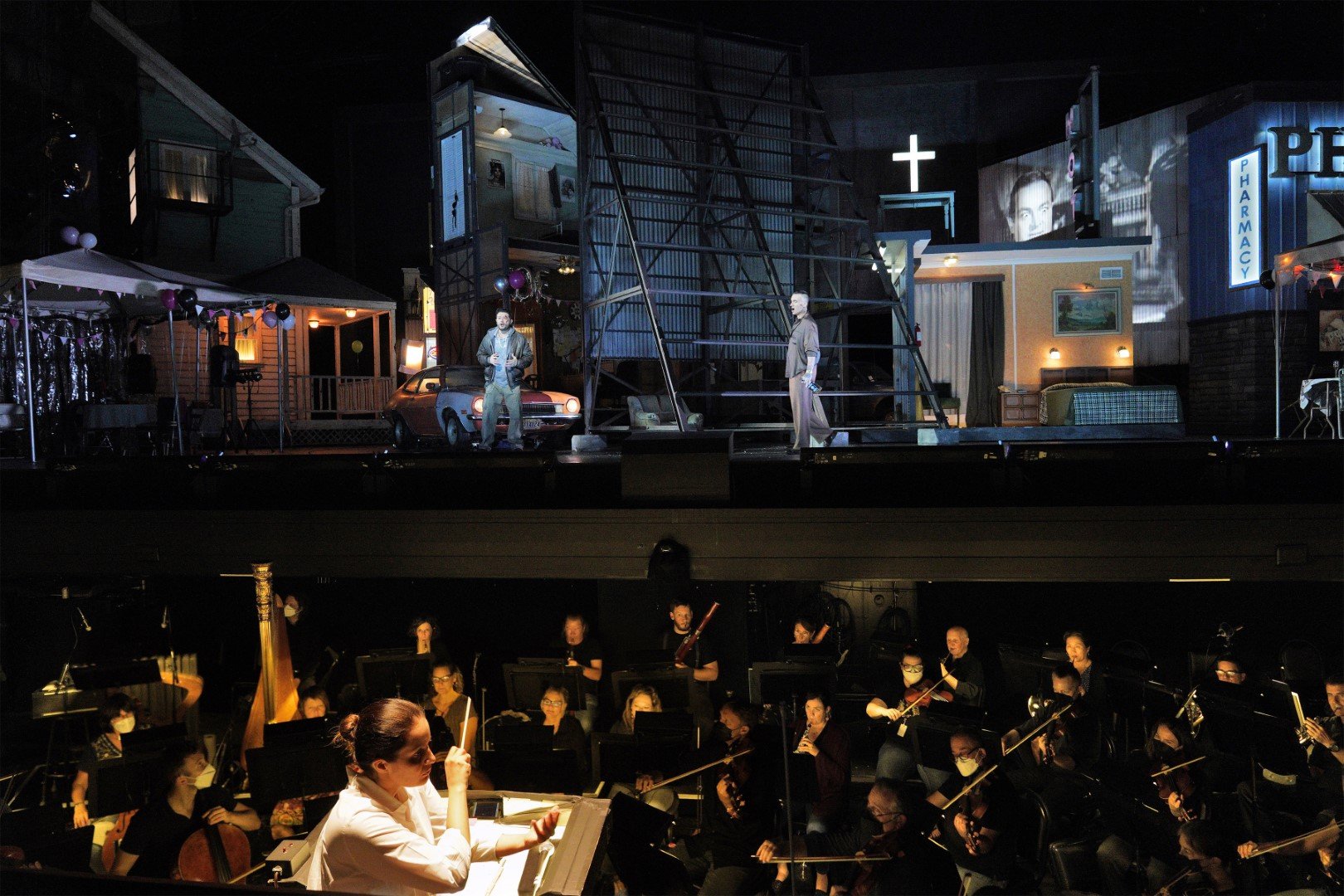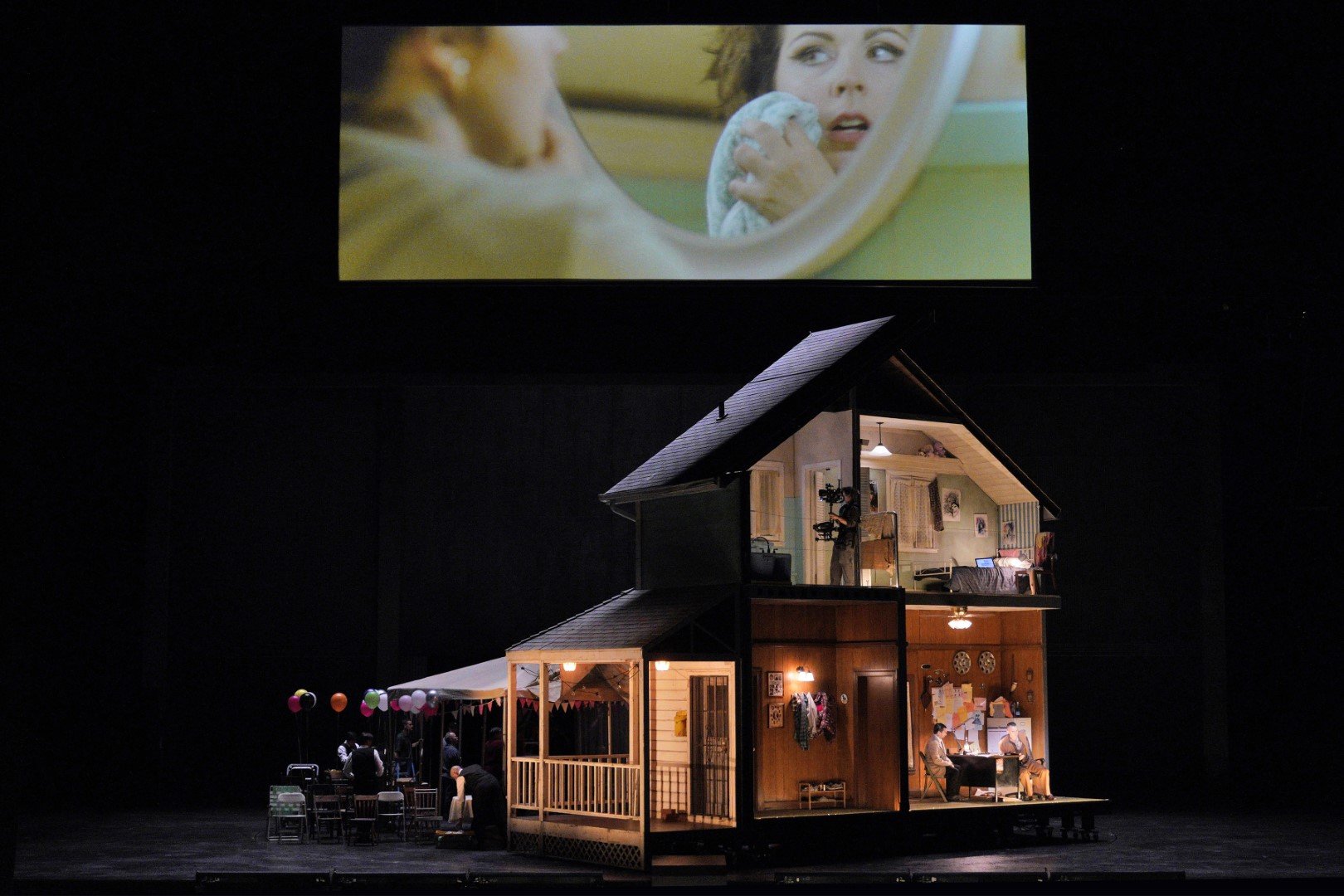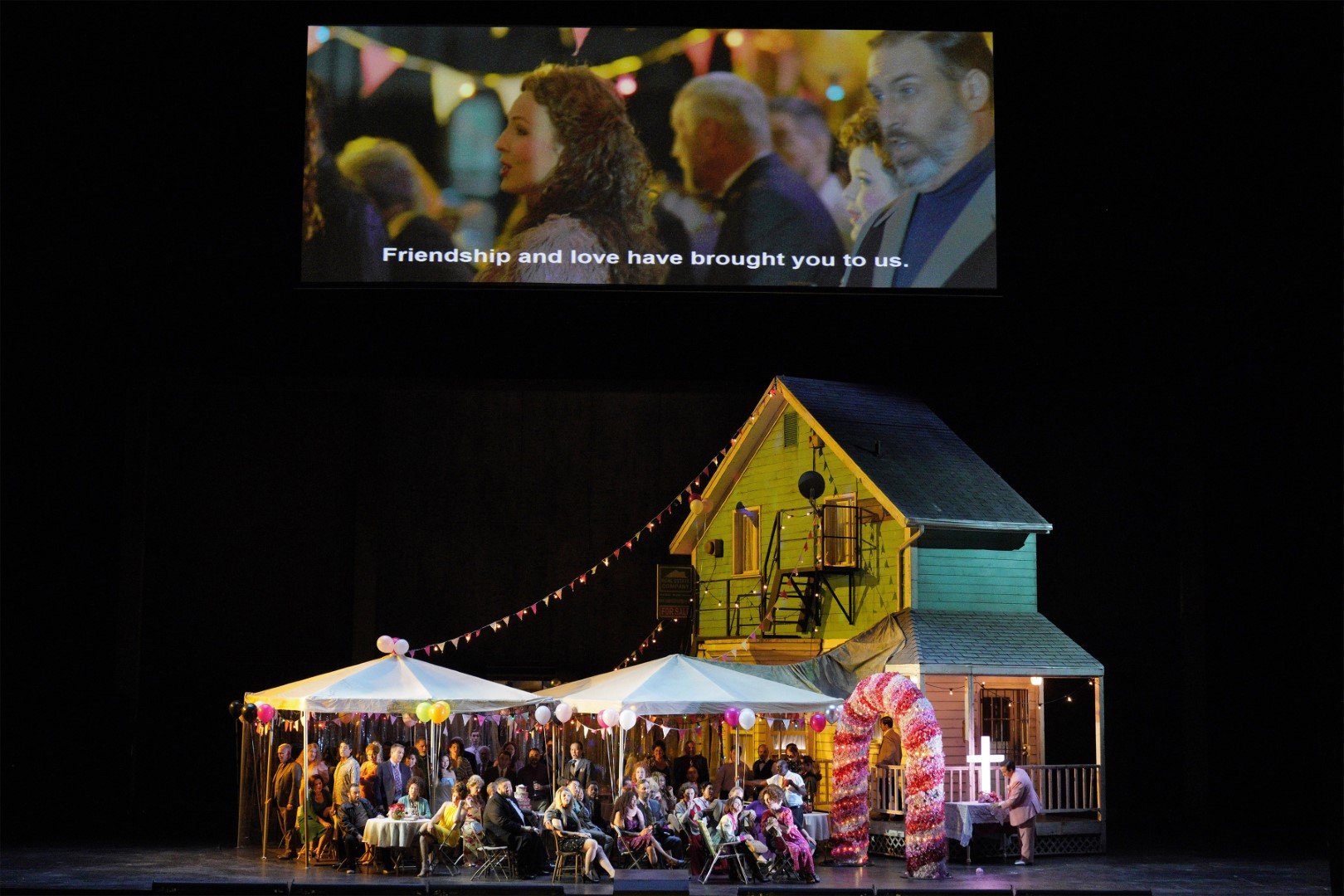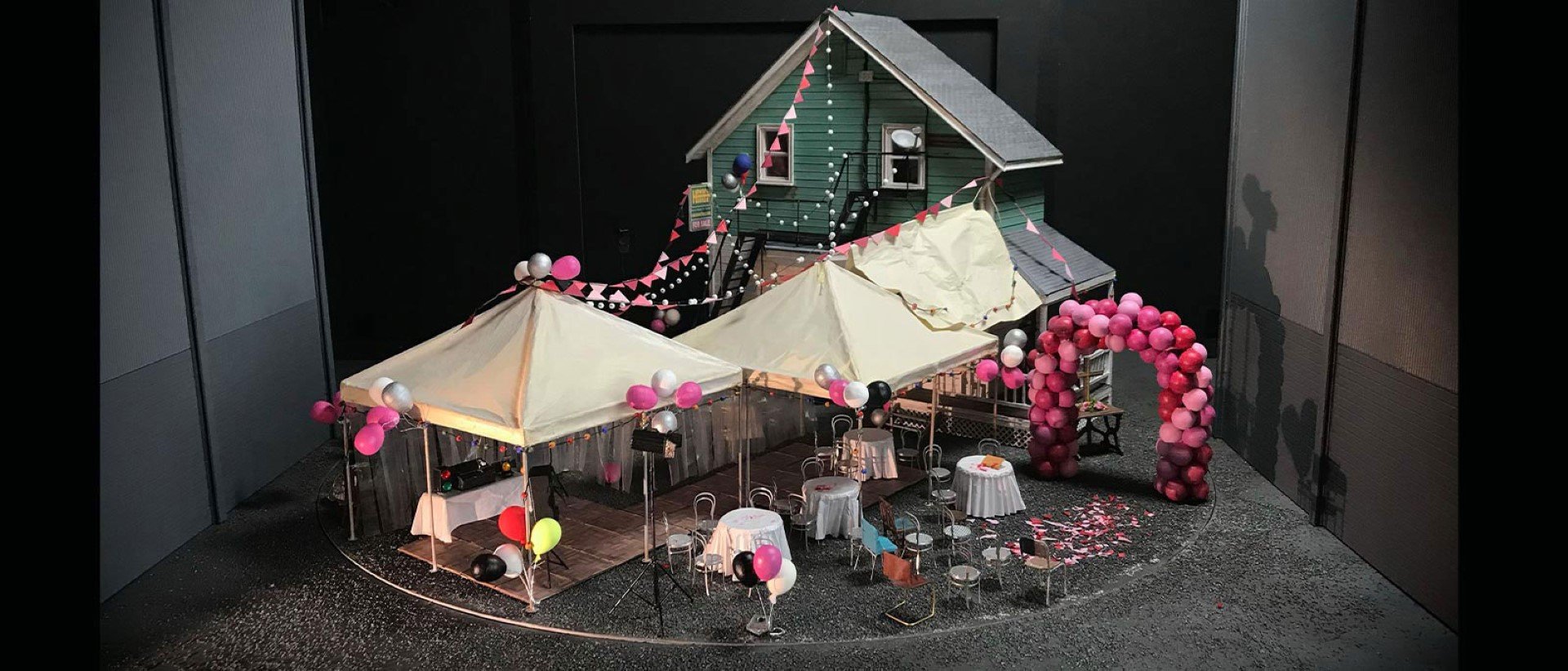L.A. Opera’s 'Lucia', Brilliantly Retold as an American Tragedy
/By Truman C. Wang
9/19/2022
Photo credit: L.A. Opera / Cory Weaver
This is the Los Angeles Opera’s first ‘normal’ season after the Covid-pandemic lockdown. As with many things post-pandemic, the new normal in opera means many perennial-popular productions were retired in favor of new narratives on contemporary social issues. For the season opener Lucia di Lammermoor, director Simon Stone set the seventeenth-century Scottish period piece in a present-day American Midwestern town fallen on hard times with drug and economic issues. Lizzie Clachan’s clever sets, anchored by a tall house (a symbolic Castle of Lammermoor), spin like a cyclorama to reveal a pharmacy, a chapel, a movie drive-in, a motel, and a backyard wedding. Blanca Añón designed the gritty working-class costumes.
The starkly blue-collared scenery and costumes contrasted sharply with the smartly coiffured and dressed audience of the opening night audience. After the initial shock has subsided, the director’s message gradually becomes clear – Lucia’s madness is in fact a result of drug-induced psychosis, exacerbated by the fake news of Edgardo’s betrayal. During her mad scene, the sets from previous acts are all spinning on the cyclorama, mirroring Lucia’s feverish, deranged mind, including the motel room where she kills her bridegroom Arturo.
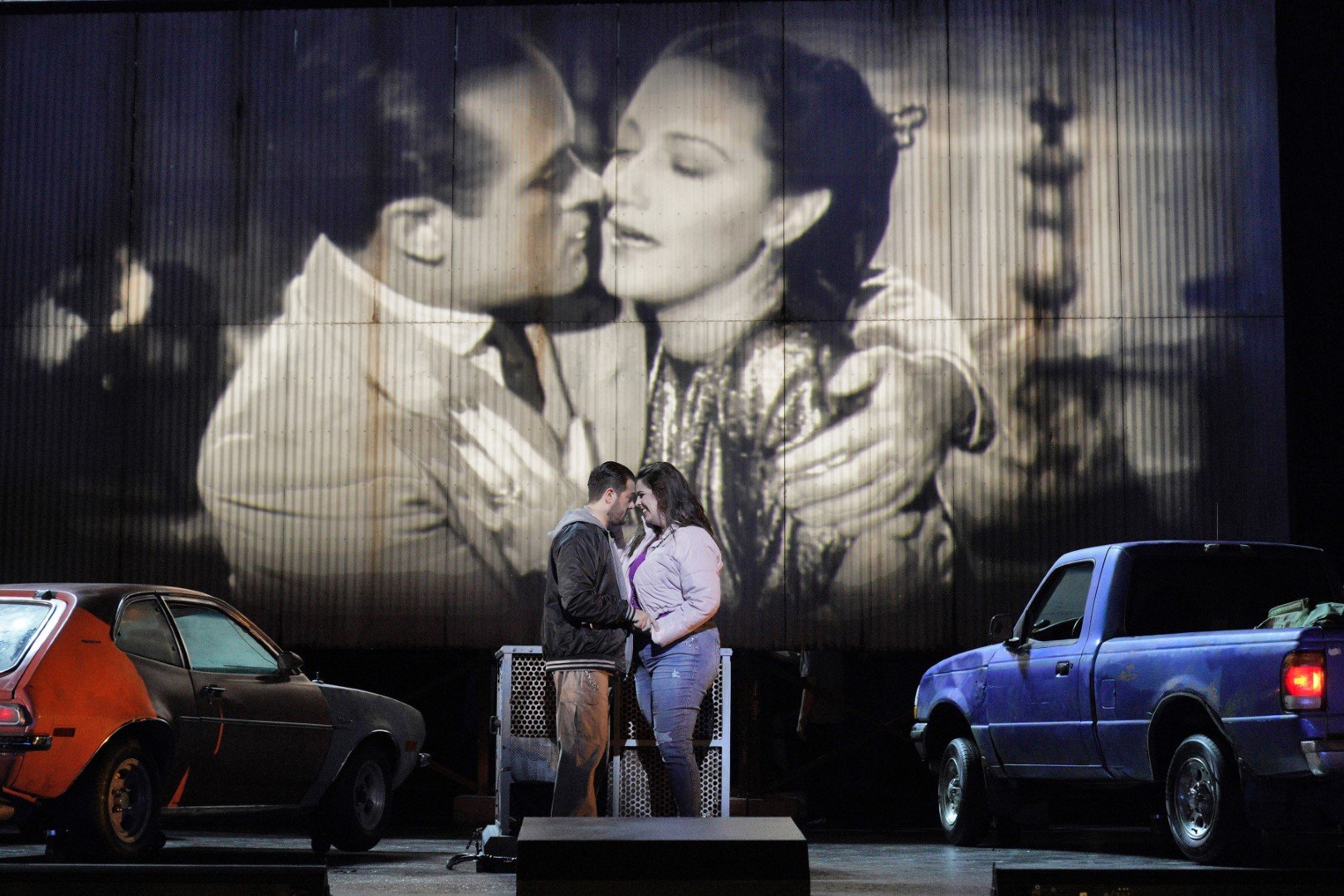
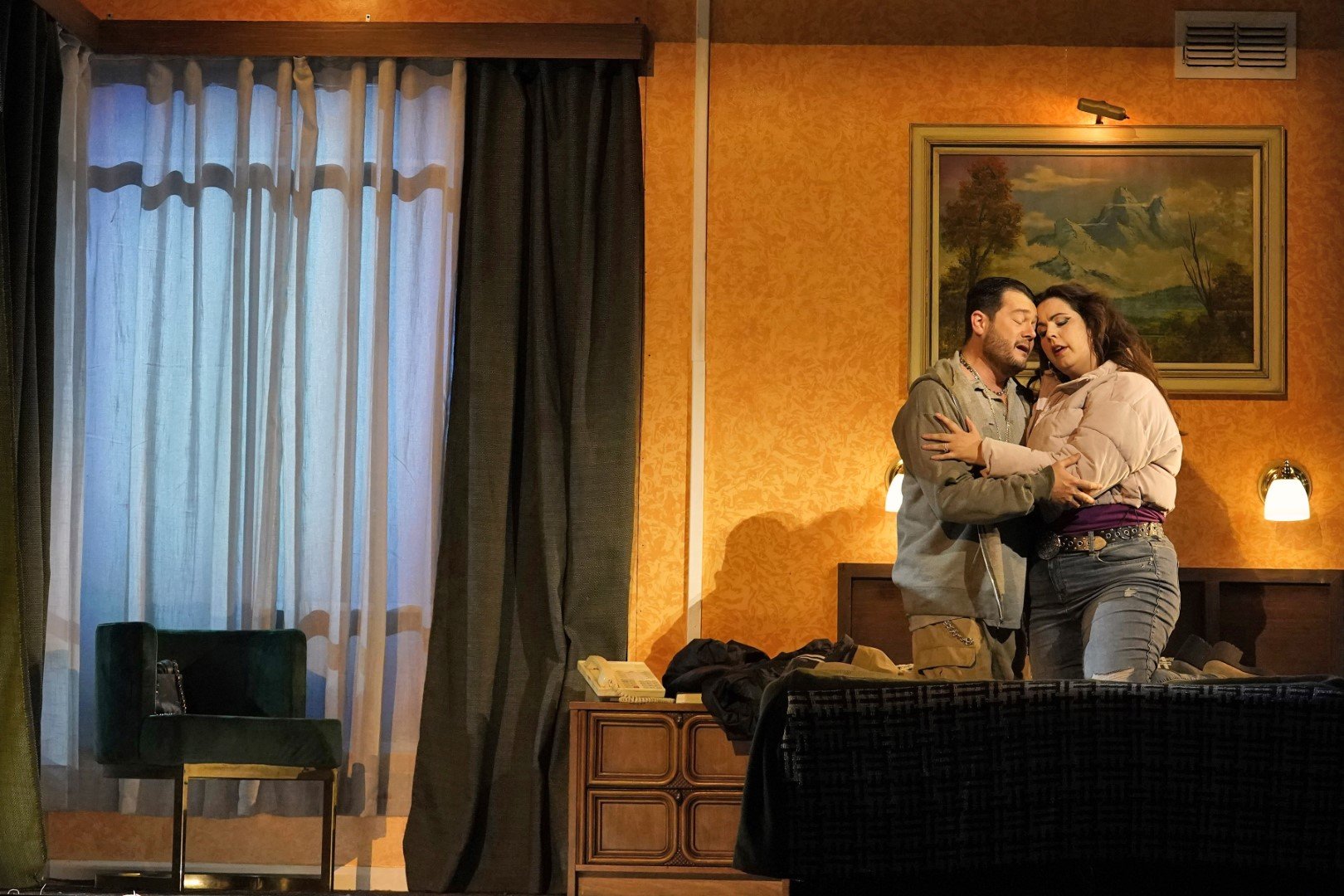
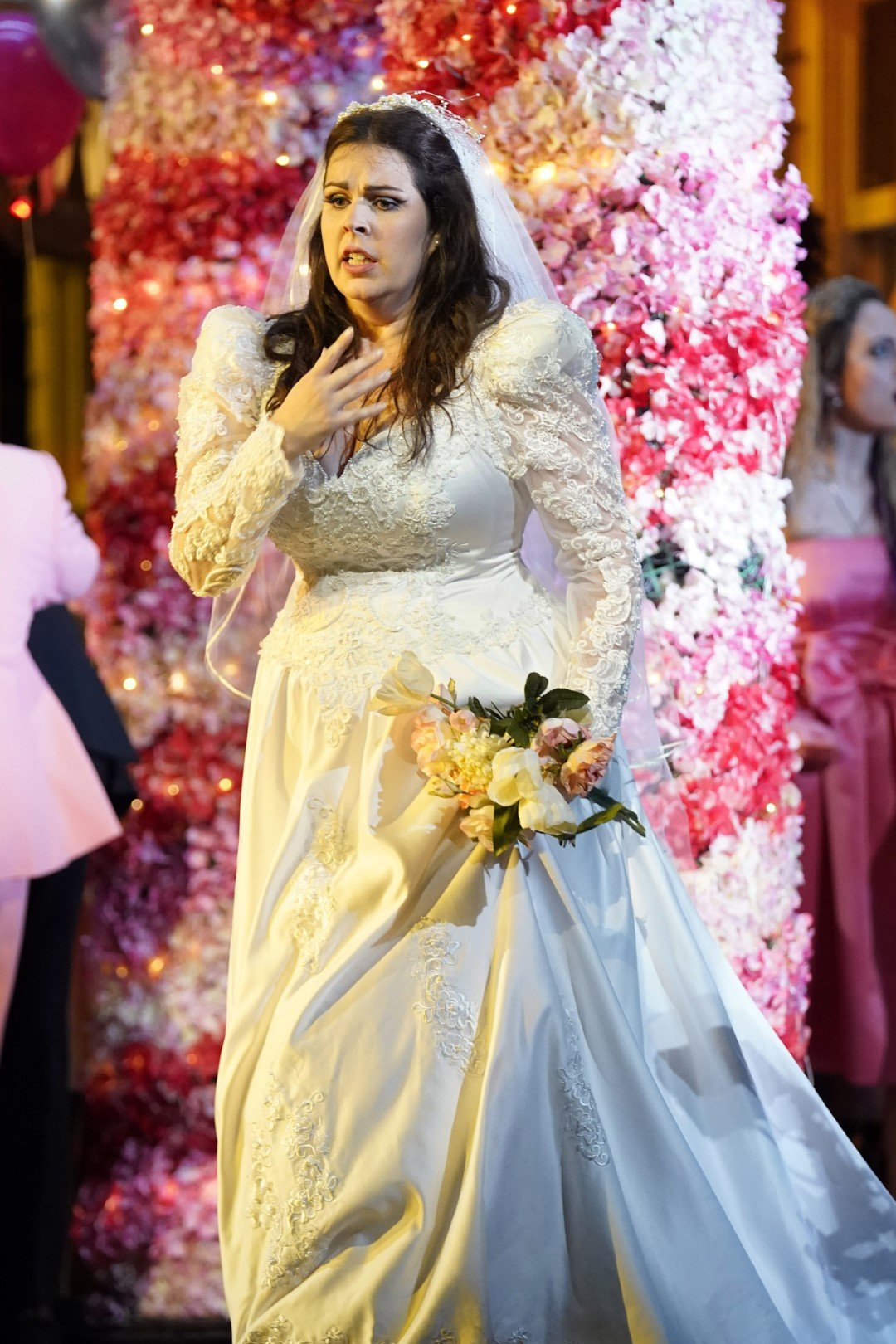
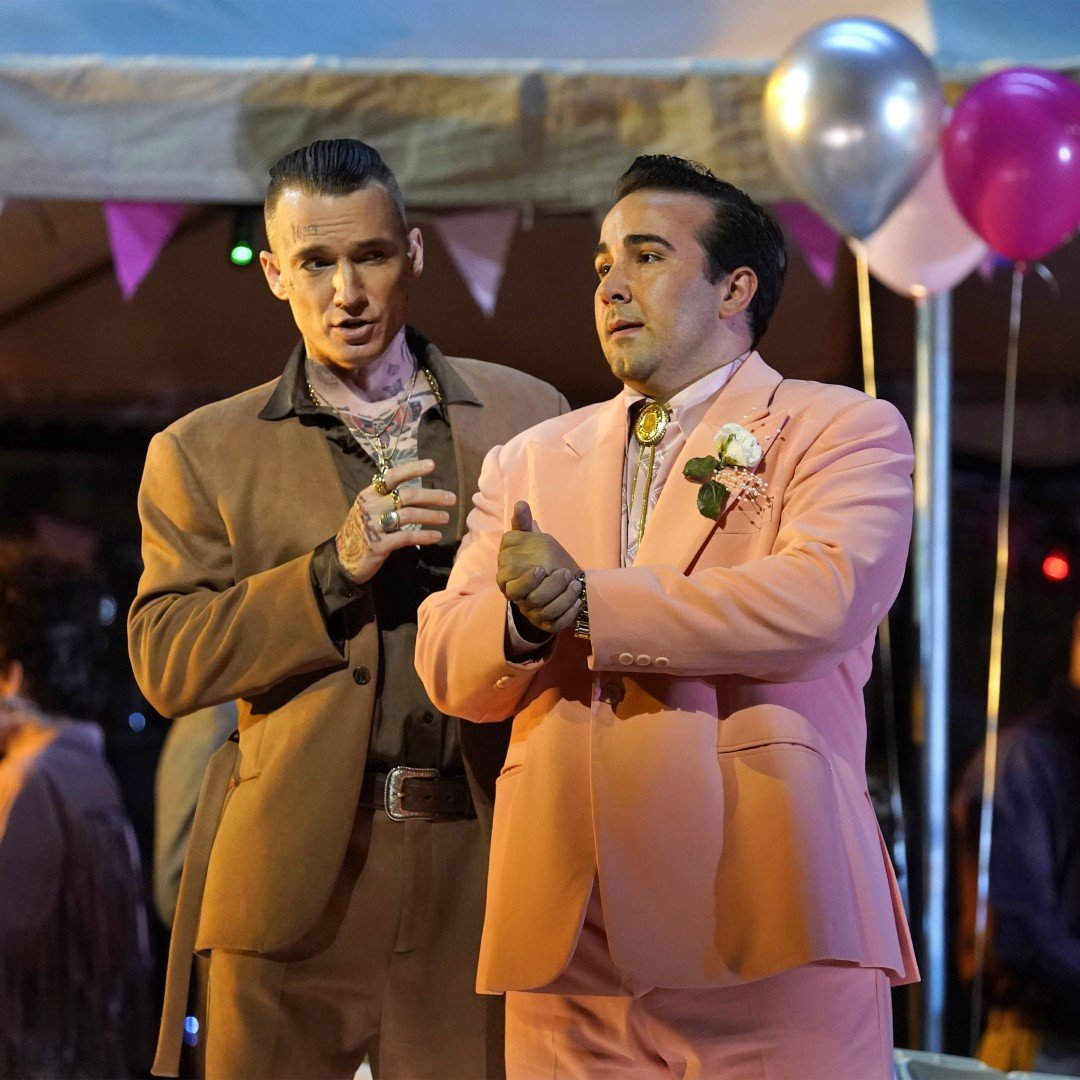

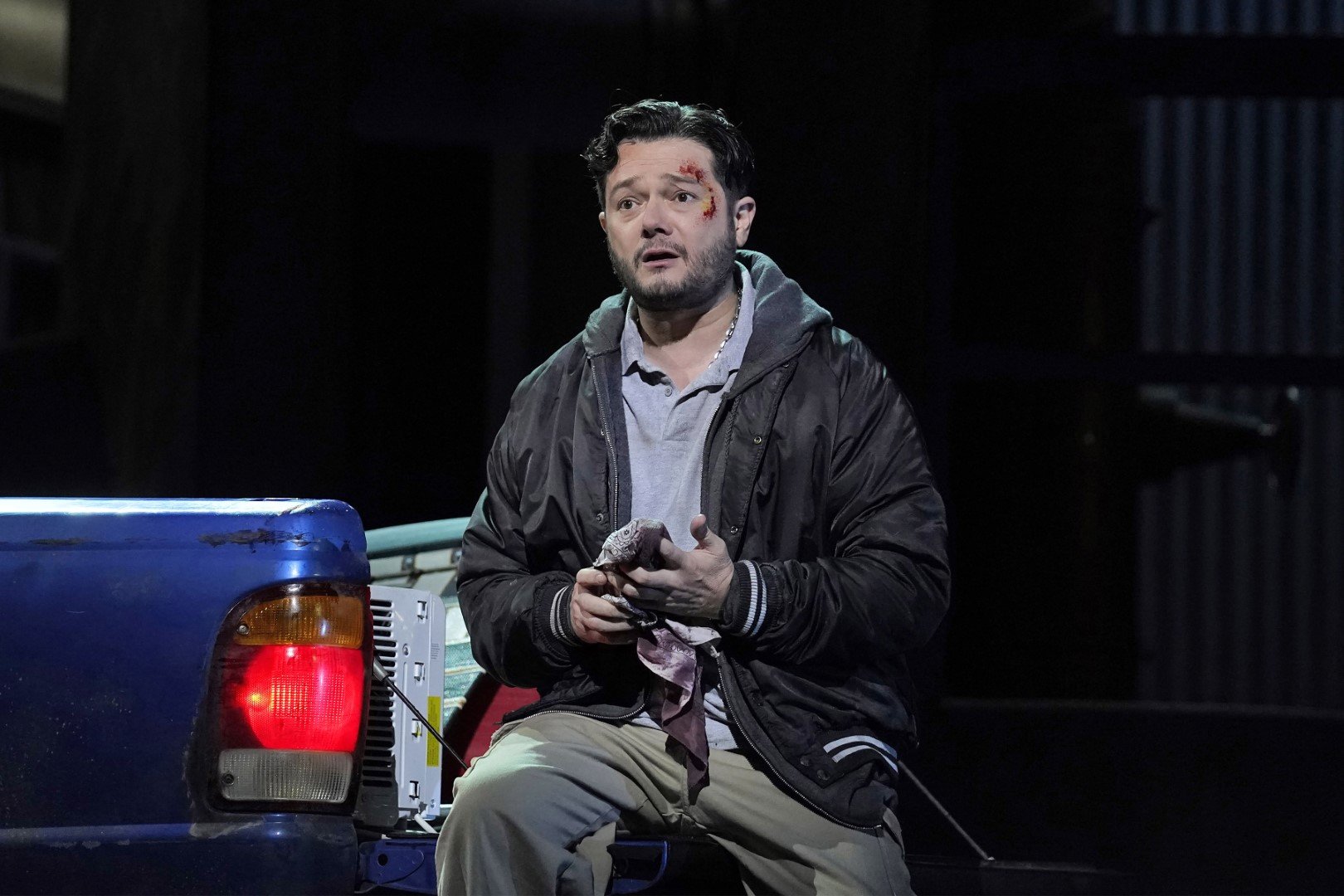
Like it or not, no opera production today is complete without video projection. Videographer Luke Halls’ large screen above the proscenium shows what looks like a Big Brother-like reality TV shoot, following our heroin everywhere and even inside her mind. The bloody ghost scene during Lucia’s “Regnava nel silenzio” is a bit too Hollywood for my taste. James Farncombe’s dramatic lighting is particularly effective in the chilling moment leading up to the famous sextet and the Wolfcrag storm scene.
As high as the scenic value of this new Lucia appears, the musical standards are even higher. In his book, “Musical Events: 1980-1983", Andrew Porter argues Donizetti’s music can be “more difficult to perform than Wagner’s... some of Donizetti's most celebrated phrases are ‘nothing’ - of no musical interest - until a conductor makes them expressive in the theatre.” L.A. Opera’s new resident conductor Lina González-Granados (born in Colombia) proves Mr. Porter right, turning Donizetti’s ‘nothing’, oomph-pa-pa orchestral accompaniment into something taut and thrilling, particularly in the concluding verse of each cabaletta (fast section of a double aria). The famous Act II sextet to the final stretta was one grand emotional roller coaster ride. No doubt she learned well in her recent stint as a conducting apprentice under the great Italian maestro Ricardo Muti in Chicago. Like Muti, her come scritto (as-written) approach to the text means no gratuitous decorations in the repeats, but instead dispatching the text with brisk efficiency, showing understanding of music that needs to be molded round a singer’s inflections – a true singers’ conductor.
As Lucia, soprano Amanda Woodbury commands secrets of the old singers – not the light songbirds of Lily Pons, Dessay or Mado Robin, but the Amazonian warbirds of Sutherland and Sills – unleashing trills and coloratura runs and cadenzas with a forceful tone and absolute precision. The house hung intently on her mad scene. She showed that with just two poignant, exquisitely uttered notes (in Lucia’s “Spargi d’amato pianto”), she could hold a house spellbound and produce a dramatic effect no one could guess from perusal of Donizetti’s ‘nothing’ score. Tenor Arturo Chacón-Cruz sings with ardor and pathos as Edgardo. Baritone Alexander Birch Elliott’s Enrico sounds almost too noble for a caddish character. Lending sympathetic supporting roles are Madeleine Lyon’s Alisa, Eric Owen’s Raimondo and Anthony Ciaramitaro’s Arturo.
Honorable mention also goes to L.A. Opera’s new chorus director Jeremy Frank, who enlivens many scenes with choruses that are fully engaging and energetic whereas in the past seasons they often sounded like Sunday school singing, accurate but uninvolving.
Welcome aboard Jeremy and Lina!
Remaining dates for Lucia di Lammermoor are September 21, 24, 28 and October 2, 9. Soprano Liv Redpath sings Lucia on September 28 – October 9. Buy tickets here.
Truman C. Wang is Editor-in-Chief of Classical Voice, whose articles have appeared in the Pasadena Star-News, San Gabriel Valley Tribune, other Southern California publications, as well as the Hawaiian Chinese Daily. He studied Integrative Biology and Music at U.C. Berkeley.


